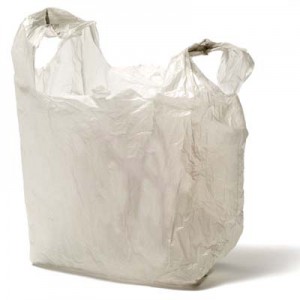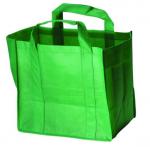
August 30, 2013
The Alternative Bags Debate
THE PROBLEM WITH PLASTIC BAGS
 We are addicted to the convenience of plastic bags. They are lightweight, compact, cheap and tough, and so every year, over 36,700 tons of plastic bags still ends up in Australian landfills. That doesn’t even include the plastic bags which are littered. Alarmingly, these bags can take as long as 1000 years to break down.
We are addicted to the convenience of plastic bags. They are lightweight, compact, cheap and tough, and so every year, over 36,700 tons of plastic bags still ends up in Australian landfills. That doesn’t even include the plastic bags which are littered. Alarmingly, these bags can take as long as 1000 years to break down.
Awareness of the danger plastic bags pose to the environment is well understood, thanks to horrific images of birds, turtles and seals consuming or being trapped by plastic bags.
This increased awareness has certainly improved our consumption of plastic bags over the last decade with the use of plastic bags falling from 7 billion in 2002 to 4 billion in 2005. However that’s where the improvements have slowed. Although many people have reduced their use and replaced plastic bags for reusable bags, Australians still use about 192 bags per person per year, with about 100 of these coming from supermarkets. Even in progressive councils such as Canberra in which plastic bag bans have been trialled, the use of store purchased plastic liners has actually increased, as people continue to seek convenience.
We believe the answer to achieving a further incremental improvement in the reduction of plastic bags lies not in bans, but in providing an environmentally sustainable substitute, convenient Compost-A-Pak bags.
WHAT ABOUT PAPER BAGS?
 Paper bags take four times more energy to manufacture than plastic bags, and of course most paper comes from tree pulp, so the impact in forests and on animal habitat is enormous and difficult to replace. Additionally, whilst paper may be biodegradable, many paper bags are coated with a film that gives them a glossy finish. The addition of this gloss means that a paper bag will not completely break down at the end of its useful life.
Paper bags take four times more energy to manufacture than plastic bags, and of course most paper comes from tree pulp, so the impact in forests and on animal habitat is enormous and difficult to replace. Additionally, whilst paper may be biodegradable, many paper bags are coated with a film that gives them a glossy finish. The addition of this gloss means that a paper bag will not completely break down at the end of its useful life.
Biodegradable bags are kinder to the environment from the point of production to the point of decomposition. Compost-A-Pak™ bags are manufactured from corn starch, an annually renewable resource, which unlike trees, is grown and harvested in a single season. At end of the line, Compost-A-Pak bags can be composted and so breakdown 100% into soil enhancing mulch and humus. As such the nutrients can be returned to the soil to support agriculture and encourage family gardens.
CALICO BAGS
 Calico bags are made from woven cotton. Given their sturdiness and re-usability they are a reasonable substitute for plastic bags and Polypropylene ‘green’ bags. However, calico bags are made from cotton, requiring vast amounts of water to grow. In addition, there is high use of synthetic fertilisers and pesticides in the cotton cultivation and manufacturing process.
Calico bags are made from woven cotton. Given their sturdiness and re-usability they are a reasonable substitute for plastic bags and Polypropylene ‘green’ bags. However, calico bags are made from cotton, requiring vast amounts of water to grow. In addition, there is high use of synthetic fertilisers and pesticides in the cotton cultivation and manufacturing process.
AND THE ‘ENVIRONMENTAL’ GREEN BAGS
 Environmental ‘green bags’ now sold by many retailers are in fact polypropylene, an almost indestructible material which is also used to make car bumpers and wheelie bins. Polypropylene is actually a fossil fuel-based plastic manufactured by the petroleum industry using the Earths depleting, non-renewable resources. The oil drilling used during the extraction process has and continues to lead to potential catastrophic consequences for wild life, marine life and the overall environment.
Environmental ‘green bags’ now sold by many retailers are in fact polypropylene, an almost indestructible material which is also used to make car bumpers and wheelie bins. Polypropylene is actually a fossil fuel-based plastic manufactured by the petroleum industry using the Earths depleting, non-renewable resources. The oil drilling used during the extraction process has and continues to lead to potential catastrophic consequences for wild life, marine life and the overall environment.
In addition, with less than 4% of plastic bags currently returned for recycling, these reusable plastic bags, once at end of life are being placed in landfill. Given their sturdiness, in landfill green bags actually breakdown at a slower rate than the plastic bags they are designed to replace, and so they sit in landfill preserved for literally hundreds of years.
However, it should be acknowledged that environmental green bags have been effective in reducing the number of plastic bags consumed in Australia, given their reusable nature. As Ian Kiernan, chairman of the Clean Up Australia campaign, pointed out in a letter to the Herald.
Each green bag will last an average household about two years, or 104 shops… Every green bag equals 1.2 single-use plastic bags. That’s an estimated 8.3 plastic bags saved every week, or 431 a year.
The 3 billion reduction in the annual use of plastic bags in Australia between 2002
and 2005 is testament, in part to the impact of such reusable bags. We think it also clearly shows that Australian families will very willing to make small changes to ensure they live more sustainability. That why we are so passionate about ensuring families have access to better choices and better products so they can make a real difference.
SO WHAT ARE THE ALTERNATIVES…
In our bias opinion, compostable bags offer a great convenient, sustainable alternative. Compost-A-Pak™ liners and Shopping Bags are 100% Australian certified compostable liners. They were designed to improve the convenience of food waste collection and so inspire families to compost and recycle.
Compost-A-Pak bags are made of third grade corn starch, which is unsuitable for human or animal consumption. Unlike trees, corn is an annually renewable resource, which can be grown and harvested in a single season. Our corn is deliberately sourced from international regions with high levels of rain fall to reduce irrigation. A natural starch-based polymer is the derived from the corn, and subsequently, Compost-A-Pak Bags and liners are then made in much the same was as a plastic bag, providing a comparable durability.
Most importantly, Compost-A-Pak products are 100% compostable. Suitable for both backyard composting and industrial composting facilities, the liners breakdown in about the same time as a dry leaf. Importantly our products are certified to Australian standards, which means you can be confident that, not only will they break down, but they have been tested to ensure there is no harmful residue remaining. They are even safe for the family veggie patch, so even at home you can achieve close circle recycling and return all the food waste nutrients into your soil. Now that’s sustainable living!
